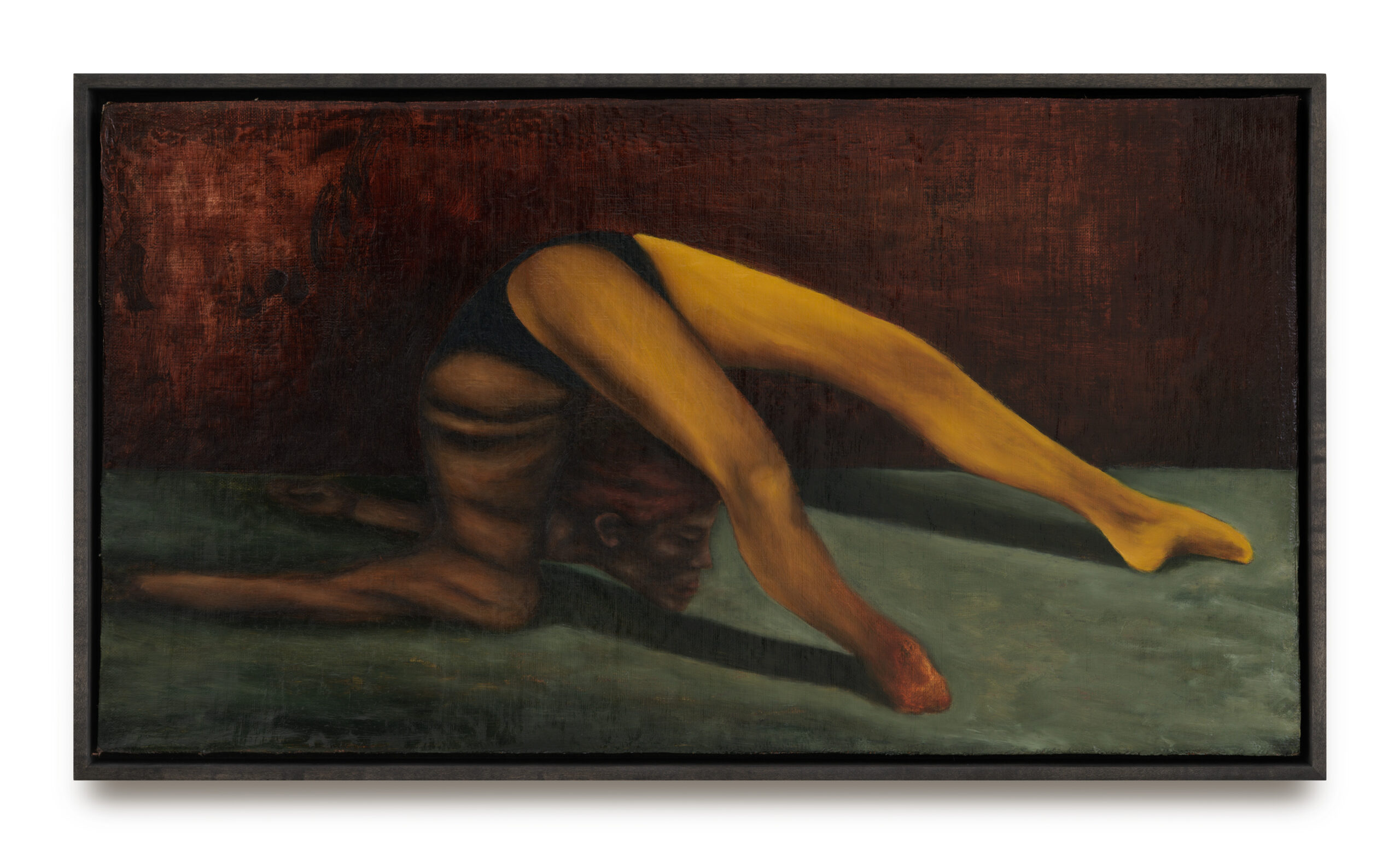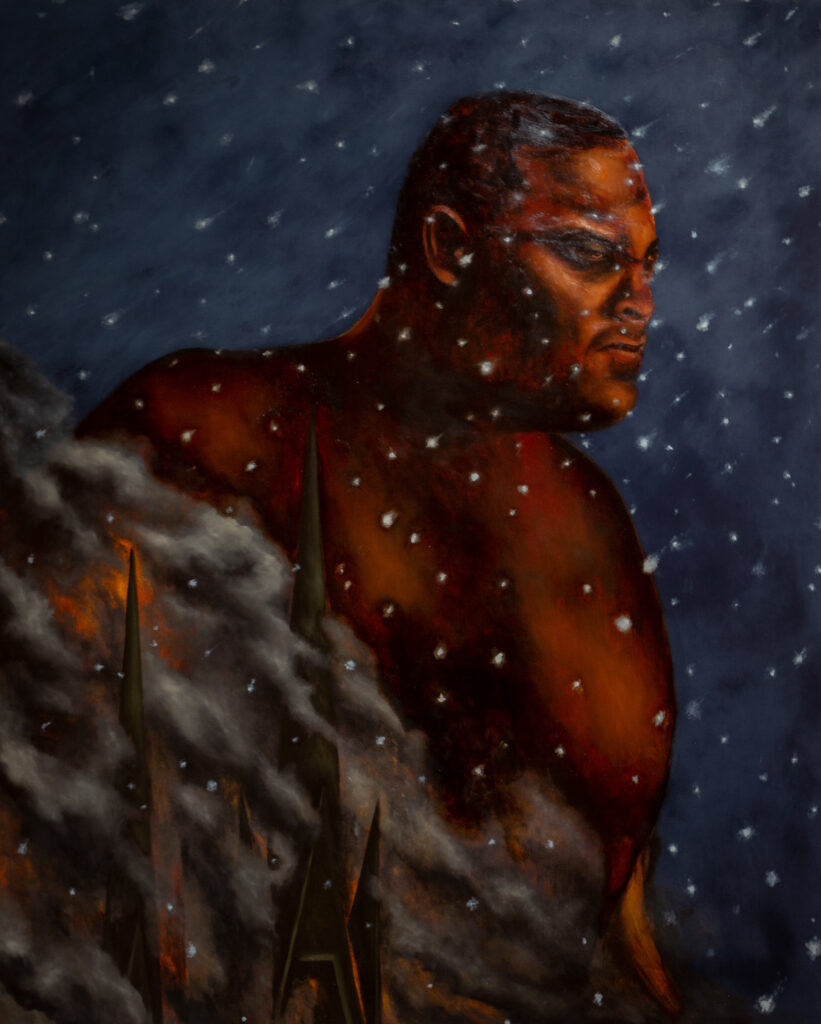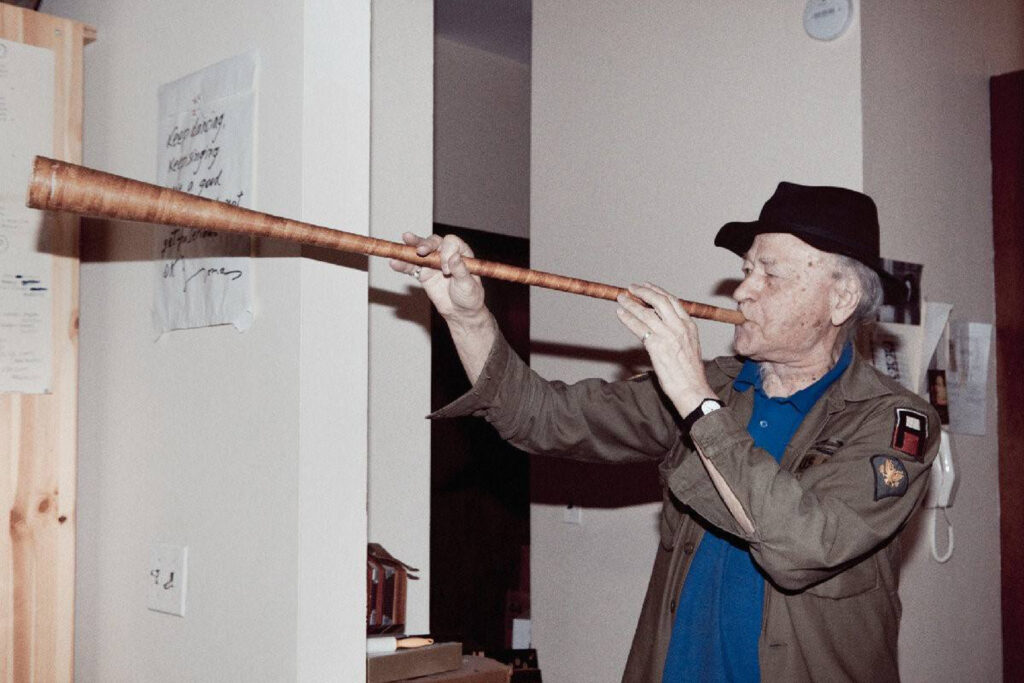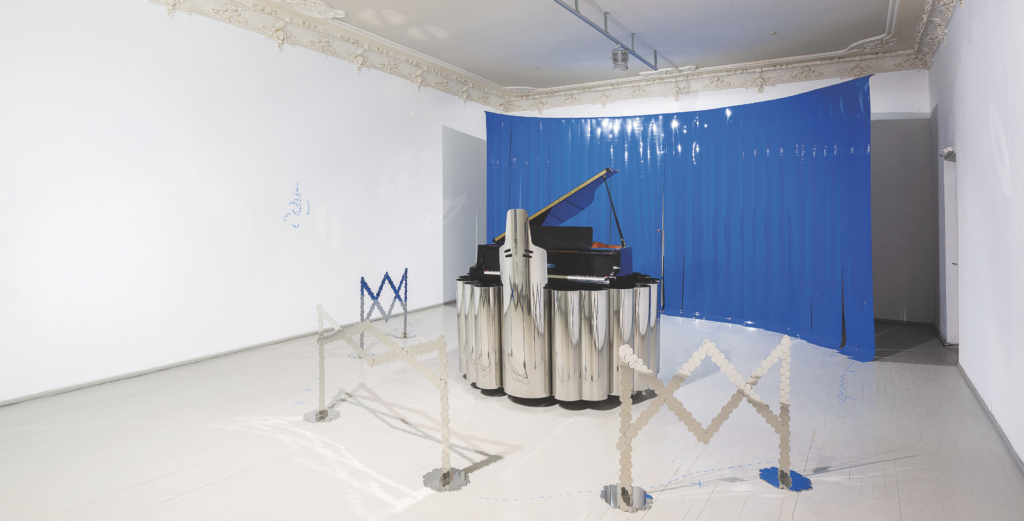The Double Logic of the Accident

[Kristupas Sabolius] A few years ago, when we first met for an interview in Paris, I opened the conversation by asking the question ‘what is plasticity for you today?’. On numerous occasions you argued that ‘plasticity’ – the central concept of your work – is, so to say, in constant motion and transformation, as you keep on addressing different fields and subjects of philosophy. At that time, you were about to publish your works on anarchism, so your response dealt with anarchy as a plastic form. It would be great to hear your answer today. Dear Catherine, where are you now with your concept of plasticity?
[Catherine Malabou] I am still following and exploring the link between plasticity, anarchism as a protest movement and anarchy as a mode of organisation. So I am still immersed in this. Both anarchy and anarchism coincide in plasticity in the creation of a new utopia, relying essentially on a new critique of private property. This is what I am trying to develop right now by elaborating a renewed interpretation of Proudhon’s What is Property ?
I am currently reading a lot around the issue of commons, this new type of literature that revolves around cooperatives, self-management and self-governance. What should a critique of private property look like today? Such is the most recent state of my questioning and work.
[KS] Plasticity means both giving and receiving form. However, you famously introduce a third sense, by referring to the idea of the explosion. Your philosophy is more than relevant today in the context of Russia’s war against Ukraine, but also in the light of other traumatic events, such as the persecution of those fighting for women’s rights in Iran and the catastrophic floods that have caused widespread destruction in Pakistan. Here, in Lithuania, we’ve been witnessing a lot of open wounds, as vast numbers of Ukrainian refugees recount stories of the cruelty they’ve been exposed to. Do you feel that this traumatic atmosphere added something to the idea of explosive, destructive plasticity?
[CM] Yes, absolutely. For me, and for a long time, the privileged image of destructive plasticity, its archetype so to speak, was terrorism. Explosive plasticity found its direct, sensible and visible manifestations in attacks such as 9/11 or the Paris attacks of 2015. Terrorism perfectly illustrated the simultaneity of construction and explosion that characterises our world. What happens today with war, the Russia-Ukraine one mainly, is a bit different. It pertains to terrorism in many respects, but the novelty is that Putin is trying to decorrelate construction from explosion. The official discourse affirms that this war aims to reconstruct Russia and build a new global order. Explosion is presented as a retaliation against the socalled Ukrainian Nazis, and a just response to the danger that they are supposed to represent. Such a decorrelation is very dangerous to the extent that it tries to hide its own destructivity, and thus appears convincing to other countries like China or small European countries.
I remember this famous text by Derrida called No Apocalypse, Not Now, in which he says that the nuclear threat remains fiction because it will never happen. It’s a kind of dissuasion on both sides so that the possibility of a nuclear conflict remains a fiction. He wrote this text during the Cold War. Today, nobody knows how the Russia-Ukraine war will end. In the US, everybody is taking the possibility of a nuclear conflict very seriously right now.
Now, I think, we are facing actually and objectively the possibility of the destruction of the world. It is not fiction at all. That is also why I think that destruction, the size, the volume, the meaning of it goes even further than just terrorism. What is at stake is the normalisation of the apocalypse. Even though it remains fictitious in a certain sense it becomes at the same time absolutely real and it goes much further than just a series of attacks.
Destructive plasticity is becoming not only a political and geo-strategic reality, but an ontological reality.

[KS] Let’s get back to the question of trauma that you analysed in several of your books. What I find very important is the proposal of The Ontology of the Accident. In this book, you describe aging, becoming old, through the functioning of two logics: the river-like logic, when one becomes old gradually; and the logic of ‘event’, when one realises someone is old all of a sudden.
[CM] This double logic that I describe – as you say, about aging – can and should be enlarged and displaced from just the problem of aging. If you think of the ecological crisis, for example, it appears as a very old, ancestral process, that has taken place for a long time and is gradual and as a recent event – as if we had suddenly become aware of it. After the terrible summer we’ve been through, people suddenly realised what they didn’t want to see.
It’s an interesting moment, so to speak, because we see the two logics congeal together: that something slow and progressive, this gradual metamorphosis may become real at the same time as an event. It is amazing to see how trauma today is both a kind of deep memory and something sudden. I think what is traumatic is also the mode in which the trauma is happening – both gradual and instantaneous.
[KS] In fact, this double logic resonates with what you propose in the interpretation of Dipesh Chakrabarty’s idea of the human being both a geological force and a subject with responsibility. It seems to be very difficult to handle this double logic without reductions. In a way, an extinction event needs to become subjective in order to be perceived, in order to enter ‘the lived experience’, whereas what we speak of in the face of a nuclear crisis, is something that aims at a total collapse.
[CM] A total collapse, something totally non-subjective, almost neutral, devoid of any meaning. It seems no hermeneutics can help us out of the ecological crisis, the Anthropocene doesn’t make sense, it is a destruction of sense. It is as blind and neutral as a natural catastrophe, except that it is the outcome of human activity. Therefore, we have to somehow become the subjects of this catastrophe.
Going back to Chakrabarty, this double bind of being subjective and objective, so to speak, implies a new definition of the historical subject. Chakrabarty says that we cannot be the traditional one. What Marx called historical consciousness, based on class consciousness, is not entirely valid to the extent that our political awareness is split between this dual dimension of neutrality and subjectivity. A neutrality that Chakrabarty calls geological. Lacan already described trauma as something deprived of any form of meaning and subjectivity: the Real.
[KS] In what sense?
[CM] Well, what Lacan adds to Freud’s theory of trauma is that there is, in trauma, something that can not be symbolised, something that escapes the symbolic. In that sense, a truly traumatised person, someone that is truly transformed by the trauma, is not susceptible to being cured by traditional psychoanalysis.
Freud thought it possible to cure trauma by perlaborating it. By Durcharbeitung (working through) the trauma, it would be possible to re-subjectivise it, so to speak.
Lacan introduces the notion of the Real (with a capital R) by stating that the trauma necessarily comprises an element of Dingheit – thing-hood, anonymity, objectivity, something that remains beyond words, significations and symbolisation. It appears in the pure form of a machine, a pure automatism of repetition, devoid of all intentionality. The ecological crisis is our Real, and the issue is to produce a form of awareness of it that at the same time respects this anonymous – unaware, non-conscious – form.
[KS] When I first read The Ontology of the Accident, I thought that you coupled ‘ontology’ and ‘the accident’ in order to pave the way to the Real. As if to say – one cannot access the Real without the accident, without the idea of the accident.
[CM] This is an ontological law. The brutal event, the interruption, the cut.
[KS] Revisiting the aforementioned double logic, it seems that the accident is the domain that almost cannot be thought of without falling either into one logic or the other. In order to grasp it, one needs to remain on a very slippery slope.
[CM] You are right, such is the challenge of plasticity: finding a way to remain in-between even when we know it is impossible. Walking on a thin line, a tightrope, a precarious frontier. At the same time, this improbable place is where we have to be today, it expresses the urgency of the current political challenges.
[KS] And this brings us to the question of vulnerability.
[CM] It is clear that walking on this tight frontier is the very expression of vulnerability. Vulnerability is this in-between. Very fragile, very moving. Are we equipped to receive the accident or, on the contrary, isn’t the accident what creates our availability to the accident? I think that vulnerability is plasticity to the extent that we have to create the form of our exposure. We do not know whether the form was already there or it has to be invented. This is what makes it plastic, transformable, lively.
[KS] Do you think we can think of vulnerability in relation to the problem of power? Not only the power of being strong, but also following the line that leads us to the power of being weak, to the power of weakness, to exposure to its own weakness. May it be paralleled with your idea of negative possibility which you also describe in The Ontology of the Accident?
[CM] Where does the weakness of power come from, you mean?
[KS] Well, I am thinking of Giorgio Agamben’s concept of impotentiality. Does your idea of the negative possibility that we may face in relation to destructive plasticity and, more precisely, to the accident, have something to do with this logic of weakness? Weakness in relation to power that accumulates strength in a certain sense.
[CM] Undoubtedly, when I have an accident I am weak, I am fragile. This is obvious. It is true that vulnerability implies weakness, the capacity to be broken, to be destroyed. What is more challenging in Agamben is that, based on the fact of weakness linked to vulnerability, which is obvious, of course, he developed a political theory of weakness and on that point, I stopped following. Weakness is not impotency.
Anarchism is a political theory that relies on the capacity of subjects to organise themselves. So, of course, it is relying on something fragile and weak, this is why we need to build something collectively in order to protect ourselves. Nevertheless, it does not imply impotentiality because it creates a collective force. I think Agamben’s reading of adynaton in Aristotle is wrong because for Aristotle what has no potentiality is just a failure. Agamben is developing a lot of consequences from this adynaton in Aristotle that are all wrong because for Aristotle something that has no potentiality is just not existing.
I think that political anarchism is something that Agamben is perhaps too quick to dismiss. Potentiality is not necessarily power. It is a power that is not necessarily an arche, something dominating, overarching. What is Agamben talking about, when he elaborates the concept of destituting power? Living in religious communities? Franciscan, etc.? Is that the model? Small groups, withdrawn from the world? This is not the political model I am interested in. I think impotentiality is a very dangerous term.
[KS] Bringing forth the question of the political, I was wondering – what would be the plastic idea of ethics? How would you describe the possibility of plastic ethics? In The Ontology of the Accident, you critically approach Levinas’ ethics, by arguing that the Levinasian Other remains, in a way, unreachable in the context of the accident. Is there an alternative?
[CM] Plasticity may immediately seem to be in contradiction with ethics because when we think of ethics we refer to stable values of something unchangeable. What could be of value that constantly transforms itself ? A plastic subjectivity might appear as a kind of sophisticated mind…
I do think that on the contrary, even if this appears counterintuitive at first sight, ethics cannot escape plasticity. Values are historical. They change. There is a very interesting development of this subject in Paul Ricoeur. In Oneself as Another, he shows that for Aristotle himself ethics does not have the rigidity of moral law as Kant develops it. Conversely, it is a matter of both remaining faithful to yourself and at the same time being able to adapt to new situations.
For example, look at what is happening today in the universe of gender theory. Ten or twenty years ago, transgenderism wasn’t even a question in academic departments of critical theory. Transgender people were just considered medical cases, etc. Now, as you know, and it is particularly strong here in the US, transgender people are more and more at the heart of the problem of gender. So, ethically speaking, many of us had to expand our vision of gender.
So, this is a concrete example, but I think I could say the same about race. Working in Irvine in California, I constantly come across Afro-pessimism. I must admit I now have a new approach to thinking about slavery thanks to my Afro-pessimist colleagues and students. I think that ethics is constantly able to develop itself, to expand and rectify itself. Something that we didn’t see ten years ago is obvious right now and on the contrary, something that is obvious right now can become obsolete. For example in feminism, nobody talks in terms of sexual difference anymore; it’s about non-binarism. Concepts are changing, the gaze is changing, etc. And at the same time, I would say that this does not weaken ethical integrity. On the contrary, it strengthens it. So for me, there is no contradiction between ethics and plasticity.
[KS] If the values remain the same, would you agree that we can get back to the ancient virtue ethics?
[CM] Ricoeur analyses the unchangeable value as a structure of a promise and the promise means: I will be there, I will constantly endure the ethical question, try to change my gaze, try to remain who I am through historical change, etc. He refers to Aristotle for that. Even if we find that Aristotle is updated or ‘lifted’ in the end.
[KS] And what about the Levinasian Other?
[CM] I think there’s something that Levinas has affirmed that is indestructible. There’s a point in Levinas’ approach that is, in my view, unchallengeable. Which is that a promise in one way or another is always an opening to the other.
What is lacking in the Levinasian perspective is that there is no change. Levinas refuses the contextuality of otherness. The other is the other – there is no plasticity of otherness. That is why he can be so rigid at certain points – he talks about Asian countries having non-monotheistic cultures that are close to otherness.
It explains his rigidity about Jewishness, about Israel. I think his point on the other is profound, absolutely unchallengeable, but at the same time otherness has to be plastic otherwise it becomes sameness. This is, perhaps, my problem with Levinas. There’s no contextualisation of otherness, it always replicates itself in the same way.
[KS] Before we conclude our conversation, I would like to ask a more general question regarding the project of plasticity which is related to the idea of metamorphosis and change. In this context, it remains in the zone between complete indeterminacy and absolute determination. How would you see this aspect in respect to our discussion on vulnerability? Is vulnerability a chance to expose yourself to the process of determination, to the process of re-determining yourself? Would it be possible to interpret it as the play of plasticity which enters through a constant work of re-determination?
[CM] I don’t know if I have the answer to that. It is a beautiful question, but very difficult. But what comes immediately to my mind is Hegel’s concept of destiny. Plastic destiny engages with subjectivity in two ways. On the one hand, when an accident happens, whatever it is, it determines the subject, necessarily it contradicts its freedom. For example, when you have a serious illness, you’re never the same again. In that sense you are determined. That is regulated by the accident itself, you become what the accident makes of you. At the same time, this fatality is just one side of the coin because it also gives you a space of creation within this determinism. This is what destiny is: the union of determinism and creation.
In a certain sense, Nietzsche, who was so anti- Hegelian on many points, says something very similar in Ecce Homo. At some point he says something like: I have to create my own illness. He was ill from these terrible headaches, and said he needed to invent himself as the subject of that pain. Both passivity and improvisation are implied in the concept of destiny.
[KS] Thank you so much, Catherine.
[CM] Thank you, Kristupas.

Kristupas Sabolius is professor of philosophy at Vilnius University and research affiliate at MIT (Climate Visions). His recent publications include On the Real (LAPAS books, 2021), Matter and Imagination. Hybrid Creativity between Science and Art (Vilnius University Press, 2018), Proteus and the Radical Imaginary (Bunkier Sztuki, CAC, 2015), The Imaginary (Vilnius University Press, 2013), signalising the contradictory function of imagination between Western and Indigenous thought. Sabolius was a member of the Swamp School curatorial team at the 16th Venice Architecture Biennale (2018, curated by Nomeda and Gediminas Urbonas). He is also a writer of novels and film scripts, including The Gambler (2014) and Invisible (2019), both co-written with director Ignas Jonynas.




